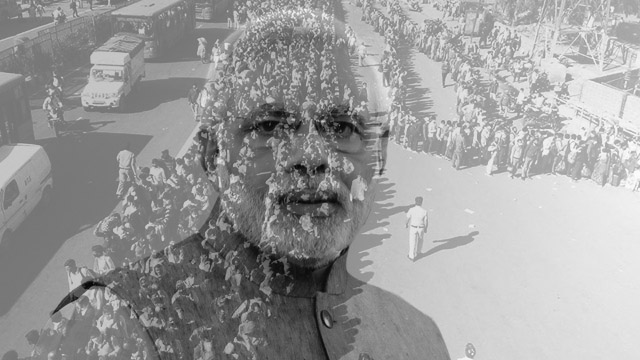
The mass exodus of poor from cities is not caused by the lockdown but Modi’s apathy
India is not alien to the optics of mass exodus. Hitherto, this country has experienced many mass exoduses driven by fear, hunger and violence. The current mass exodus of the poor migrant workers from the metropolitan cities like New Delhi, Mumbai, etc, epitomises the inhumanity embedded in the present order and the sheer apathy of the ruling elites towards the have-nots. Millions of poor workers, who were employed in the unorganised sector, are on the highways, in the midst of an unprecedented nationwide lockdown announced by Prime Minister Narendra Modi to combat the deadly Coronavirus (COVID-19) outbreak, as they are walking hundreds of miles to reach their villages. Men, women, children and infants are rushing in a panic to a place where they can have something to eat and survive with bare necessities as they can’t bear the cost of living in big cities and lack the paperwork that would entitle them for government’s relief programmes.
When the prime minister announced the “Janata Curfew” — a 14-hour-long lockdown on Sunday, March 22nd 2020 — there were questions raised over the socio-economic impact of a lockdown on the poor, especially the unorganised sector’s workers, the daily wage earners. Modi cared a lemon about the poor daily wage earners and announced a 21-day-long nationwide lockdown on March 24th 2020. Driven by the compulsion to score PR values, Modi gave no time to the migrant workers and daily wage earners to prepare for the lockdown or return to their villages. The idea was to contain them within their houses to “flatten the curve” of the Coronavirus epidemic from reaching the stage of community transmission in India. However, the Modi regime disregarded the data while doing so.
One in every six urban Indian lives in slums. Among the slum dwellers, 35% have no access to tap water. Most of the unorganised sector workers — especially daily wage earners — share tiny accommodation with many others, which negates the possibility of “social isolation” preached by the World Health Organization (WHO). Most of them live in shanties with no water supply or drainage system. When the WHO’s Coronavirus advisory tells people to wash their hands with soap and water frequently, it becomes a tragic joke for millions of such poor who have to fight a tough battle to access water on a daily basis. Without understanding the socio-economic peculiarities of India, without distinguishing between the ground realities of China, Italy, and other developed countries on one hand, and India, which fights with severe poverty and socio-economic backwardness, on the other, the Modi regime took the decision to enforce a nationwide lockdown that resulted in severe chaos and defeated the purpose.
While the government arranged special planes to pick up Indians stranded in China, Iran, etc, countries where the Coronavirus outbreak reached a peak and earned kudos from the press, the big capitalists and urban middle class, it didn’t bother to provide a transport system to help the migrant workers and their family members to return to their villages or an opportunity for them to stay in the cities where they are locked up, with adequate food and monetary assistance. Though Delhi Chief Minister Arvind Kejriwal announced that his government will provide food to the poor and will help them stay in government-run school buildings, in isolation, the Modi regime didn’t announce any such measure.
On Sunday, 29th March 2020, during his radio programme Maan Ki Baat (words of the mind), Modi apologised to the poor for their inconvenience due to the lockdown and again asked them to not flout the lockdown. He ignored the fact that most of them don’t live in a proper house. Ironically, before listening to his speech, a man, who worked as a food delivery man in Delhi and was walking to his home in Madhya Pradesh, died of cardiac arrest in Agra, Uttar Pradesh. The reality of India’s “superpower” status became visible to all. Modi’s cheerleaders didn’t stop calling the lockdown another “masterstroke” as they do for all his decisions, blamed the poor for violating the lockdown and praised the re-telecast of Ramayana series of 1987.
More hunger deaths, than deaths due to COVID-19 infection, are awaited as the reverse-migration situation worsens. There is no positive intervention from the Modi regime and there is no corpus fund to support the poor in sustaining themselves. The Rs 1.73 trillion-worth relief package for the poor, announced recently, is totally hollow and attempts to hoodwink the people. The unavailability of any central scheme will worsen the situation and force more poor to flee to their villages. If the spread of the disease needs to be stopped, then there is an urgent need for a change in the government’s approach. Rather than appeasing the urban elites and middle class, Modi’s core voters, with PR stunts or by telecasting Ramayana, it’s imperative to reach out the hungry and the poor and provide them quarantined, hygienic shelters, help them stay there with all facilities, provide them food, medicines and proper testing. Whoever is found fit must be assisted in returning to their families, and special care must be taken of women and children. Unless the government is doing these and is only asking the people to play the key roles that should be played by it, neither the reverse-migration nor the epidemic blistering of COVID-19 infection can be stopped.
An avid reader and a merciless political analyst. When not writing then either reading something, debating something or sipping espresso with a dash of cream. Street photographer. Tweets as @la_muckraker
